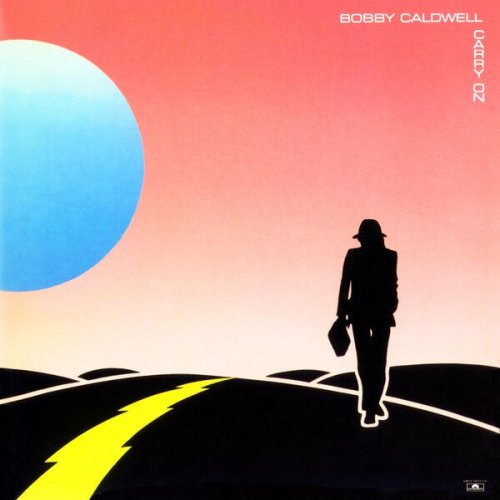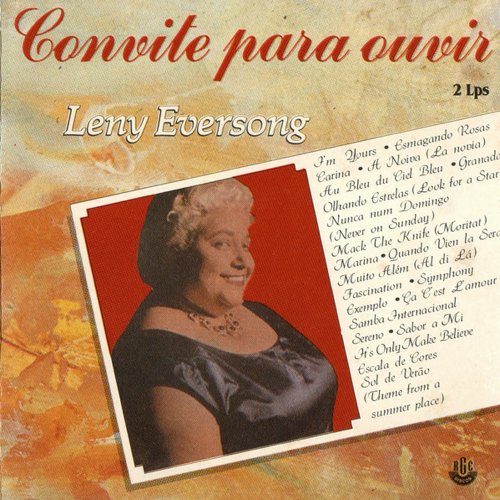Ludwig Suthaus, Kirsten Flagstad, Wilhelm Furtwängler - Richard Wagner: Tristan und Isolde (2004)
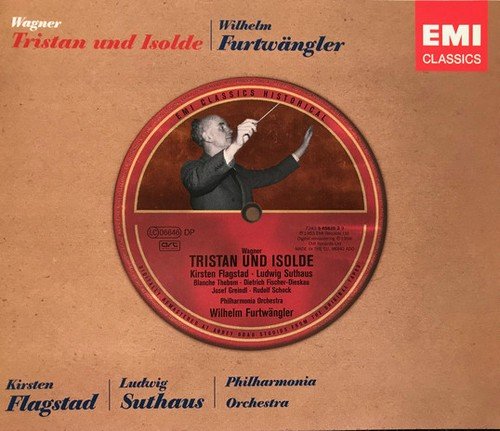
Artist: Ludwig Suthaus, Kirsten Flagstad, Wilhelm Furtwängler
Title: Richard Wagner: Tristan und Isolde
Year Of Release: 2004
Label: EMI Classics
Genre: Classical, Opera
Quality: FLAC (tracks+.cue,log,scans)
Total Time: 04:15:50
Total Size: 885 Mb
WebSite: Album Preview
Tracklist: Title: Richard Wagner: Tristan und Isolde
Year Of Release: 2004
Label: EMI Classics
Genre: Classical, Opera
Quality: FLAC (tracks+.cue,log,scans)
Total Time: 04:15:50
Total Size: 885 Mb
WebSite: Album Preview
CD 1:
01. Akt I. Vorspiel [11:01]
02. Akt I, Szene I. "Westwärts schweift der Blick" [01:18]
03. Akt I, Szene I. "Brangäne, du? Sag - wo sind wir?" [02:51]
04. Akt I, Szene I. "O weh! Ach! Ach, des Übels, das ich geahnt!" [02:17]
05. Akt I, Szene II. "Frisch weht der Wind der Heimat zu" [00:49]
06. Akt I, Szene II. "Mir erkoren, mir verloren" [03:25]
07. Akt I, Szene II. "Hab acht, Tristan! Botschaft von Isolde" [04:09]
08. Akt I, Szene II. "Darf ich die Antwort sagen?" [01:41]
09. Akt I, Szene III. "Weh, ach wehe! Dies zu dulden!" [02:03]
10. Akt I, Szene III. "Wie lachend sie mir Lieder singen" [02:25]
11. Akt I, Szene III. "Von seinem Lager blickt' er her" [02:10]
12. Akt I, Szene III. "O Wunder! Wo hatt' ich die Augen?" [02:40]
13. Akt I, Szene III. "Da Friede, Sühn' und Freundschaft" [02:52]
14. Akt I, Szene III. "O Süße,Traute! Teure! Holde! Goldne Herrin!" [03:08]
15. Akt I, Szene III. "Ungeminnt den hehrsten Mann" [02:23]
16. Akt I, Szene III. "Kennst du der Mutter Künste nicht?" [04:05]
17. Akt I, Szene IV. "Auf! Auf! Ihr Frauen!" [01:11]
18. Akt I, Szene IV. "Herrn Tristan bringe meinen Gruß" [02:19]
19. Akt I, Szene IV. "Nun leb wohl, Brangäne!" [04:48]
20. Akt I, Szene V. Langsam [02:02]
21. Akt I, Szene V. "Begehrt, Herrin, was Ihr wünscht" [01:49]
22. Akt I, Szene V. "Da du so sittsam, mein Herr Tristan" [02:17]
23. Akt I, Szene V. "Nun will ich des Eides walten" [03:20]
CD 2:
01. Akt I, Szene V. "War Morold dir so wert" [03:42]
02. Akt I, Szene V. "Ho! He! Ha! He! Am Obermast die Segel ein!" [01:27]
03. Akt I, Szene V. "Du hörst den Ruf?" [02:37]
04. Akt I, Szene V. "Auf das Tau! Anker los!" [03:47]
05. Akt I, Szene V. "Tristan!... Isolde!" [02:47]
06. Akt I, Szene V. "Was träumte mir von Tristans Ehre?" [01:41]
07. Akt I, Szene V. "Schnell, den Mantel, den Königsschmuck!" [02:39]
08. Akt II. Vorspiel [01:59]
09. Akt II, Szene I. "Hörst du sie noch?" [03:51]
10. Akt II, Szene I. "Der deiner harrt - o hör mein Warnen!" [04:11]
11. Akt II, Szene I. "O laß die warnende Zünde" [03:15]
12. Akt II, Szene I. "Und mußte der Minne tückischer Trank" [03:14]
13. Akt II, Szene II. "Isolde! Geliebte! ... Tristan! Geliebter!" [02:34]
14. Akt II, Szene II. "Das Licht! Das Licht!" [02:28]
15. Akt II, Szene II. "Der Tag! Der Tag" [03:50]
16. Akt II, Szene II. "O eitler Tagesknecht!" [02:41]
17. Akt II, Szene II. "In deiner Hand den süßen Tod" [03:26]
18. Akt II, Szene II. "Geweihte!" [03:37]
19. Akt II, Szene II. "O sink hernieder, Nacht der Liebe" [05:41]
20. Akt II, Szene II. "Einsam wachend in der Nacht" [03:30]
21. Akt II, Szene II. "Lausch, Geliebter!" [02:21]
22. Akt II, Szene II. "Unsre Liebe? Tristans Liebe?" [02:56]
CD 3:
01. Akt II, Szene II. "Doch unsre Liebe" [02:31]
02. Akt II, Szene II. "So stürben wir, um ungetrennt" [02:25]
03. Akt II, Szene II. "Habet acht! Habet acht!" [02:36]
04. Akt II, Szene II. "O ew'ge Nacht, süße Nacht!" [03:57]
05. Akt II, Szene III. "Rette dich, Tristan!" [02:00]
06. Akt II, Szene III. "Tatest du's wirklich?" [03:58]
07. Akt II, Szene III. "Wozu die Dienste ohne Zahl" [03:47]
08. Akt II, Szene III. "Dies wunderhehre Weib" [02:14]
09. Akt II, Szene III. "Nun, da durch solchen Besitz mein Herz" [03:55]
10. Akt II, Szene III. "O König, das kann ich dir nicht sagen" [01:52]
11. Akt II, Szene III. "Wohin nun Tristan scheidet, willst du, Isold', ihm folgen?" [03:09]
12. Akt II, Szene III. "Als für ein fremdes Land" [02:36]
13. Akt II, Szene III. "Verräter! Ha! Zur Rache, König!" [02:24]
14. Akt III. Vorspiel [04:05]
15. Akt III, Szene I. "Hirtenreigen auf einer Schalmei" [03:17]
16. Akt III, Szene I. "Kurwenal! He! Sag, Kurwenal!" [03:18]
17. Akt III, Szene I. "Öd' und leer das Meer!" / "Hirtenreigen auf einer Schalmei" / "Die alte Weise" [03:09]
18. Akt III, Szene I. "Wo du bist? In Frieden, sicher und frei!" [04:41]
19. Akt III, Szene I. "Dünkt dich das? Ich weiß es anders" [04:01]
20. Akt III, Szene I. "Isolde noch im Reich der Sonne!" [04:31]
CD 4:
01. Akt III, Szene I. "Noch losch das Licht nicht aus" [02:55]
02. Akt III, Szene I. "Mein Kurwenal, du trauter Freund!" [02:50]
03. Akt III, Szene I. "Hirtenreigen auf einer Schalmei; Noch ist kein Schiff zu sehn!" [04:48]
04. Akt III, Szene I. "Nein! Ach nein! So heißt sie nicht!" [03:21]
05. Akt III, Szene I. "Der Trank! Der Trank! Der furchtbare Trank!" [03:06]
06. Akt III, Szene I. "Mein Herre! Tristan! Schrecklicher Zauber!" [02:29]
07. Akt III, Szene I. "Das Schiff? Siehst du's noch nicht?" [02:14]
08. Akt III, Szene I. "Wei sie selig, hehr und milde" [03:43]
09. Akt III, Szene I. "Hirtenreigen auf einer Schalmei; O Wonn! Freude! Ha! Das Schiff!" [03:28]
10. Akt III, Szene II. "O diese Sonne! Ha dieser Tag!" [03:50]
11. Akt III, Szene II. "Ich bin's, ich bin's, süßester Freund!" [02:21]
12. Akt III, Szene II. "Die Wunde! Wo? Laß sie mich heilen!" [04:05]
13. Akt III, Szene III. "Kurwenal! Hör! Ein zweites Schiff" [04:21]
14. Akt III, Szene III. "Tot denn alles! Alles tot!" [01:56]
15. Akt III, Szene III. "Sie wacht! Sie lebt! Isolde!" [03:28]
16. Akt III, Szene III. "Mild und leise wir er lächelt" [03:43]
17. Akt III, Szene III. "Heller schallend, mich umwallend" [03:30]
Performers:
Tristan: Ludwig Suthaus
Isolde: Kirsten Flagstad
Brangäne: Blanche Thebom
König Marke: Josef Greindl
Kurwenal: Dietrich Fischer-Dieskau
Melot: Edgar Evans
Seemann: Rudolf Schock
Hirt: Rudolf Schock
Steuermann: Rhoderick Davies
Conductor: Wilhelm Furtwängler
Philharmonia Orchestra
Chorus of the Royal Operahouse, Covent Garden
How to describe this recording to those unfamiliar with it? Along with the Callas Tosca, this has been defined as a classic of the recording industry in the half century since its making by just about every commentator who has written about it. Even the divulging of its terrible secret (that Elizabeth Schwarzkopf sang a couple of high Cs for Flagstad) has never detracted from its value as one of the great Wagner performances ever preserved on disc.
Although capturing Flagstad’s exalted Isolde (no matter about those Cs) is one of the important achievements of this set, it is the conducting of Furtwängler that makes it irreplaceable. One might even find more intense theatricality in the two surviving acts of a live Tristan with this conductor from Berlin (1947), but one would search in vain for a more convincing architectural unity, a more persuasive knitting together of structure and impulse, than is to be heard here. Even Furtwängler himself did not achieve this unity, the sense of a single thread running from the Prelude’s opening note to the opera’s close, in the theatre (admittedly we have to draw that conclusion from a performance minus the first act, but draw it we can). Every single phrase is connected to what precedes it and what follows it. Although the phrasing is supple, and there are many subtle variations of tempo, everything is perfectly prepared. The music breathes, breathes in a way that is so natural that we are ultimately unaware of the act of performance, and aware only of Wagner’s great achievement. Every aspect of the conductor’s craft and art is present and is applied to this whole—color, balance, tempo, texture, chord-voicing, shaping, articulation—all of this and more are sewn together to make this miracle of a performance.
Flagstad is vocally beyond any Isolde who has ever recorded the role. Her solid column of rich-hued sound, secure all the way up to (but, obviously, not including) the very top, gives us a traversal of this role quite unlike any other. Nilsson also triumphed in this music, but with a bright beacon of sound; Flagstad’s tonal richness is a thing of unique beauty. It can be admitted that she doesn’t shade or color her voice very much—there have certainly been more insightful and deeply felt Isoldes—but never one sung as thrillingly. Suthaus may not have been the equivalent of Melchior or Vickers at their best, but he is more than the adequate placeholder that some commentators have called him. He sings with a dark timbre that never turns hard, convinces us in his long delirium in act III, and is, in fact, one of the unheralded assets of this set. The young Fischer-Dieskau is both insightful and vocally strong as Kurwenal, Greindl a bit gruffer than the best Markes one has encountered.
But starting to pick at details is already to miss the point. As you are listening to the performance, you are caught up completely in Wagner’s astonishing score, not ticking off pluses and minuses in the performance. Some of that credit, too, must go to producer Walter Legge; despite their rocky relationship, even the conductor recognized the role Legge played once he heard the playbacks. The recording, from the early days of LP and at a time when capturing complete Wagner operas was no easy task, is excellently balanced and rich sounding. Despite much feuding between conductor and producer, at the end of the sessions Furtwängler said to Legge: “My name will be remembered for this, but yours should be.” In truth, both should be—because what they have assured is that history will always understand the great achievement of the most important name here Richard Wagner. -- Henry Fogel
Although capturing Flagstad’s exalted Isolde (no matter about those Cs) is one of the important achievements of this set, it is the conducting of Furtwängler that makes it irreplaceable. One might even find more intense theatricality in the two surviving acts of a live Tristan with this conductor from Berlin (1947), but one would search in vain for a more convincing architectural unity, a more persuasive knitting together of structure and impulse, than is to be heard here. Even Furtwängler himself did not achieve this unity, the sense of a single thread running from the Prelude’s opening note to the opera’s close, in the theatre (admittedly we have to draw that conclusion from a performance minus the first act, but draw it we can). Every single phrase is connected to what precedes it and what follows it. Although the phrasing is supple, and there are many subtle variations of tempo, everything is perfectly prepared. The music breathes, breathes in a way that is so natural that we are ultimately unaware of the act of performance, and aware only of Wagner’s great achievement. Every aspect of the conductor’s craft and art is present and is applied to this whole—color, balance, tempo, texture, chord-voicing, shaping, articulation—all of this and more are sewn together to make this miracle of a performance.
Flagstad is vocally beyond any Isolde who has ever recorded the role. Her solid column of rich-hued sound, secure all the way up to (but, obviously, not including) the very top, gives us a traversal of this role quite unlike any other. Nilsson also triumphed in this music, but with a bright beacon of sound; Flagstad’s tonal richness is a thing of unique beauty. It can be admitted that she doesn’t shade or color her voice very much—there have certainly been more insightful and deeply felt Isoldes—but never one sung as thrillingly. Suthaus may not have been the equivalent of Melchior or Vickers at their best, but he is more than the adequate placeholder that some commentators have called him. He sings with a dark timbre that never turns hard, convinces us in his long delirium in act III, and is, in fact, one of the unheralded assets of this set. The young Fischer-Dieskau is both insightful and vocally strong as Kurwenal, Greindl a bit gruffer than the best Markes one has encountered.
But starting to pick at details is already to miss the point. As you are listening to the performance, you are caught up completely in Wagner’s astonishing score, not ticking off pluses and minuses in the performance. Some of that credit, too, must go to producer Walter Legge; despite their rocky relationship, even the conductor recognized the role Legge played once he heard the playbacks. The recording, from the early days of LP and at a time when capturing complete Wagner operas was no easy task, is excellently balanced and rich sounding. Despite much feuding between conductor and producer, at the end of the sessions Furtwängler said to Legge: “My name will be remembered for this, but yours should be.” In truth, both should be—because what they have assured is that history will always understand the great achievement of the most important name here Richard Wagner. -- Henry Fogel
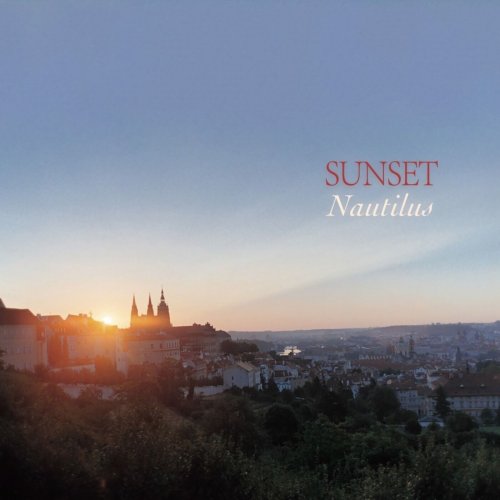
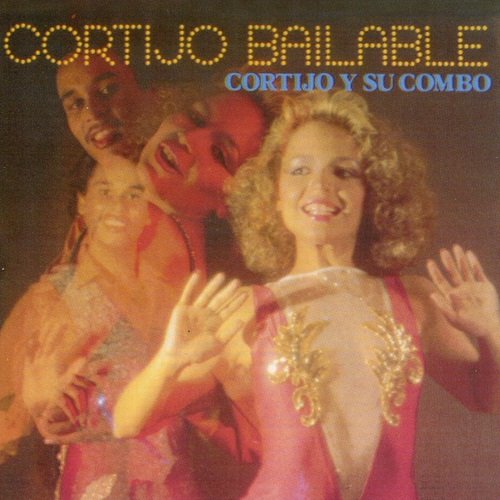
![The Voros Collective - Intercontinental Man (2026) [Hi-Res] The Voros Collective - Intercontinental Man (2026) [Hi-Res]](https://www.dibpic.com/uploads/posts/2026-03/1772344932_cover.jpg)
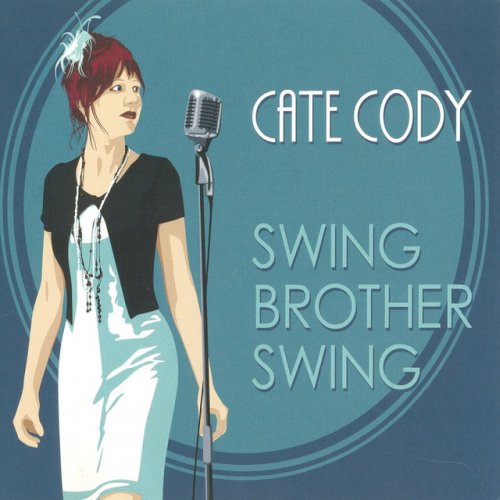
![Mammal Hands - Becoming (2018) [Hi-Res] Mammal Hands - Becoming (2018) [Hi-Res]](https://www.dibpic.com/uploads/posts/2023-01/1673772235_cover.jpg)
![Teresa Brewer - In London (2016) [Hi-Res] Teresa Brewer - In London (2016) [Hi-Res]](https://www.dibpic.com/uploads/posts/2021-03/1617164538_teresa-brewer-in-london-2016.jpg)
![Thomas Bergsten Trio - Chill Microtonal Free Jazz and Modern Composition To Study To (2026) [Hi-Res] Thomas Bergsten Trio - Chill Microtonal Free Jazz and Modern Composition To Study To (2026) [Hi-Res]](https://www.dibpic.com/uploads/posts/2026-03/1772434983_p1cagvb6yegof_600.jpg)
